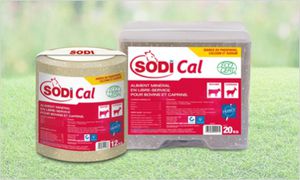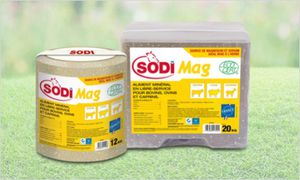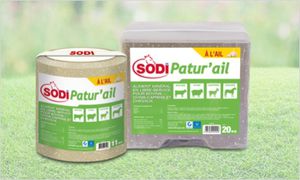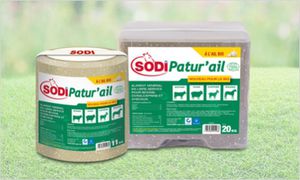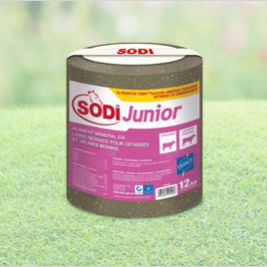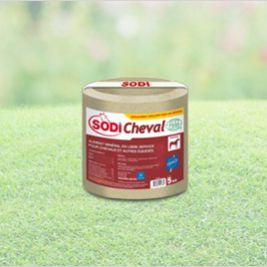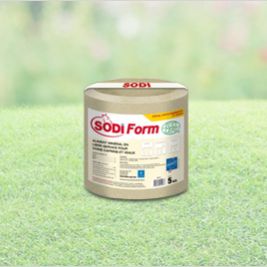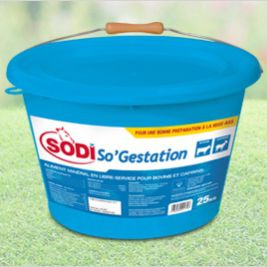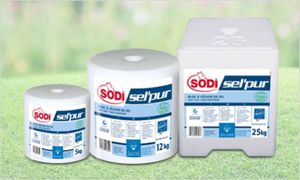

- Products
- Catalogs
- News & Trends
- Exhibitions
Animal feed supplement cattlepoultrysodium
Add to favorites
Compare this product
Characteristics
- Type
- for animals
- Animal type
- cattle, poultry
- Main ingredient
- sodium, salt, rich in trace elements
- Form
- powder
- Function
- deficiency corrector, for reproduction, for metabolism, for lactation, for animals
Description
Iodine, an essential trace element:
Iodine is a constituent of thyroxine, a growth hormone secreted by the thyroid. It supports the energy metabolism and is important for lactation, reproduction and fattening young animals. The results of an iodine deficiency is goitre, rough coats, slower growth and infertility.
Fodder is naturally low in sodium and iodine.
According to INRA, in 2007, average iodine levels in green fodder were 0.1 to 0.3 mg per kg DM for grasses, 0.2 mg per kg DM for legume fodder and 0.1 mg per DM for maize silage, compared to minimum RDAs of 0.5 mg per kg DM. Iodised salt feed supplements help to better meet dairy livestock needs as high levels of iodine are lost in milk.
Directions for use:
Please comply with daily iodised salt requirements to not exceed maximum daily iodine levels (see table).
Maximum iodine levels (mg/kg) to not be exceeded (regulation 1459/2005)
Equidae (Horse family) : 4
Dairy cows : 5
Laying hens : 5
Fish : 20
Other species : 10
Maximum % of daily iodine/salt feed rations : 0.40%
Fine iodised salt sack characteristics (standard values)
Composition:
Sodium chloride, i.e. 39.1% Na (sodium).
Moisture: 0.10%, Iodine 50 mg/kg in the form of potassium iodide
Grain size:
90% of grains are between 0.125 and 0.8 mm
Anti-caking agent:
Sodium ferrocyanide (E535): 20 mg/kg maximum
Packaging sizes:
25 kg sacks on a wrapped 800 x 1200 pallet weighing 1,000 kg
Related Searches
- Animal nutritional supplement
- Nutritional supplement
- Solid feed supplement
- Mineral nutritional supplement
- Cattle nutritional supplement
- Deficiency corrector supplementary feed
- Poultry nutritional supplement
- Reproduction nutritional supplement
- Powder nutritional supplement
- Licking block
- Metabolism nutritional supplement
- Licking block with trace elements
- Cattle licking block
- Goat licking block
- Lactation nutritional supplement
- Sheep licking block
- Vitamins licking block
- Sodium supplementary feed
- Salt licking block
- Magnesium licking block
*Prices are pre-tax. They exclude delivery charges and customs duties and do not include additional charges for installation or activation options. Prices are indicative only and may vary by country, with changes to the cost of raw materials and exchange rates.


